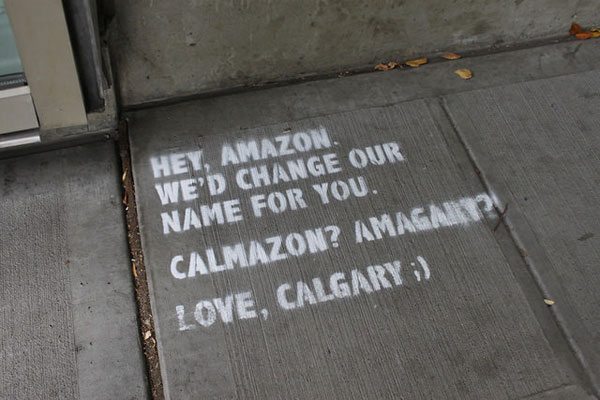
February 12, 2018; News & Observer (Raleigh, NC)
Nearly 100 academics, urbanists, and policy experts have written a letter that calls on cities and states to reject the “level of incentives and the looming competition between cities over incentives for Amazon’s new headquarters,” reports Abbie Bennett in the Raleigh News & Observer. More than 13,000 have since signed a petition to indicate their support of the letter’s position, Bennett adds.
At NPQ, we have regularly covered the ongoing competition among the 238 communities (now winnowed down to 20 second-round candidates) that are seeking to house the global giant’s second headquarters.
The unseemly nature of cities throwing dollars at Amazon, a firm with a market capitalization nearing $700 billion, is obvious. As NPQ’s Spencer Wells noted last October, a central question seems to have been, “How much do mayors, civic leaders, and city councils need to abase themselves to win a prize from the oligarch?” But at least it is nice to see economists and urban planners go on record to maybe coax some restraint from local and state governments, many of whom have offered Amazon billions of dollars in tax breaks to locate in their communities.
The petition drive has been organized by Richard Florida, who directs the Martin Prosperity Institute at the University of Toronto. Signers include a remarkable “who’s who” of the field, including Harvard’s Dani Rodrik (soon to head the International Economics Association); Bruce Katz, Founding Director of the Metropolitan Policy Program at Brookings; three former chairs of the President’s Council of Economic Advisors (Laura Tyson, Alan Krueger, and Jason Furman); Columbia’s Saskia Sassen, author of The Global City; Andrés Duany, founder of the Congress for a New Urbanism; Ben Hecht, CEO of Living Cities; Eugenie Birch, co-director of the Penn Institute for Urban Research; Jeffrey Sachs, former director (2002-2016) of the Earth Institute; and Jennifer Bradley, founding director of the Aspen Institute’s Center for Urban Innovation.
Sign up for our free newsletters
Subscribe to NPQ's newsletters to have our top stories delivered directly to your inbox.
By signing up, you agree to our privacy policy and terms of use, and to receive messages from NPQ and our partners.
Many nonprofit advocacy group leaders have also signed on to the initial list. Among the more prominent names are Stacy Mitchell, co-director of the Institute for Local Self Reliance; Greg LeRoy, executive director of Good Jobs First; Thea Lee, president of the Economic Policy Institute; and Dean Baker, senior economist and co-founder of the Center for Economic and Policy Research.
The letter notes that,
Tax giveaways and business location incentives offered by local governments are often wasteful and counterproductive, according to a broad body of research. Such incentives do not alter business location decisions as much as is often claimed, and are less important than more fundamental location factors. Worse, they divert funds that could be put to better use underwriting public services such as schools, housing programs, job training, and transportation, which are more effective ways to spur economic development.
The letter adds that the “use of Amazon’s market power to extract incentives from local and state governments is rent-seeking and anticompetitive. It is in the public interest to resist such behavior and not play into or enable it.”
To that end, the letter asks elected officials to “sign a mutual non-aggression pact that rejects such egregious tax giveaways and direct monetary incentives for the Amazon headquarters” and encourages states, cities, and regions to “compete on the underlying strength of their communities—not on public handouts to private business.”—Steve Dubb













